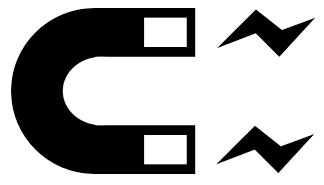 Fasteners to avoid magnetic “interference”
Fasteners to avoid magnetic “interference”
Non-magnetic fasteners service a variety of applications mainly where magnetic “interference” needs to be avoided or require very low magnetic permeability. Cryogenics, superconductor projects, medical industry applications such as MRI's and highly sensitive electronics are just a few places non-magnetic fasteners are needed. Depending on the application there are a wide variety of metals and alloys, as well as polymers and ceramics that can fill this role.
- Inconel: High Temperature Strength & Corrosion
- Monel: Cryogenic Applications
- Titanium: Lightweight Strength & Saltwater Corrosion
- Aluminum: Strong, Lightweight Strength
- Stainless Steel: Basic Economic Solutions
- Ceramics: Extreme Temperatures
- Polymer: Ultra-Purity & Low Temperature Corrosion
Inconel 625 and 718
For corrosion resistance, high strength and high temperature protection
Inconel 625 and 718 bolts each bring special attributes to non-magnetic applications. Inconel 625 screws offers excellent corrosion resistance to acids – often comparable to Hastelloy. It is also quite strong with a tensile strength of 144ksi and high temperature use of 1800°F. Inconel 718 bolts are renowned for their extreme high strength – about 2x as strong as Inconel 625 bolts – as well as excellent creep-rupture strength at temperatures to 1300°F and usable up to 1800°F.
Not only are Monel bolts ideal for saltwater and HF corrosion, but this alloy also finds a niche in serving non-magnetic cryogenic applications. Monel 400 bolts offer excellent non-magnetic properties - both ductility and toughness - in US Navy Tear Tests at temperatures as low as -320°F. Even at the temperature of liquid hydrogen, Monel K500 bolts will increase in strength - with lilttle or no change to ductility. Since Monel screws still retains good mechanical properties at low temperatures - such as good ductility and impact strength - they are an excellent material for non-magnetic cryogenic applications.
Titanium Grade 2 and Grade 5
A good choice light weight strength and chloride/saltwater corrosion resistance
Titanium grade 2 screws offer excellent resistance to chlorides and saltwater. They can be used in both rapid and stagnant seawater and maintain their material integrity for decades in mile-deep oceans. In addition to chloride and saltwater resistance, Titanium grade 5 bolts are known for its excellent strength to weight ration 4 times stronger than 316 stainless steel at nearly half the weight. Titanium grade 5 screws play a huge role in non-magnetic medical applications for their strength and biocompatibility.
Aluminum 7075
An economic choice for a strong, lightweight fastener
A go-to fastener for many aerospace applications, these bolts are commonly used for their combination of high strength and low weight. An Aluminum 7075 screw offers strength comparable to many grades of steel at a fraction of the weigh and can be tempered to meet several strength requirements.
Stainless Steel
Serving basic non-magnetic fastener needs
When extreme strength, high temperatures or corrosion are not a concern, there are several grades of stainless steel fasteners, in particular 300 series, that can provide a non-magnetic fastening solution. Although wrought austenitic stainless steels are non-magnetic in the annealed condition, they may develop magnetic response when cold worked. Cold work can transform some asutenite to martensite. Thie can be reversed via a solution heat treatment.

Ceramic Fasteners
For extreme temperatures
Ceramic fasteners are non-magnetic and are ideal when extreme temperature resistance – over 3000F – is a requirement. But be aware that ceramic fasteners are not meant for strength applications as they offer no yield strength and can become brittle or break when high levels of weight or tension are applied.
Polymer Fasteners
For low temperature corrosion environments
When temperatures are under 500F and extreme strength is not needed, sometimes a polymer bolt can be a possible solution to an application. Many of our polymers are highly corrosion resistant and can be used up to 500F. In these cases, polymer screws are an excellent option for non-magnetic applications. In addition, polymer screws are ideal for non-magnetic applications in a high purity setting such as medical and pharmaceuticals.

